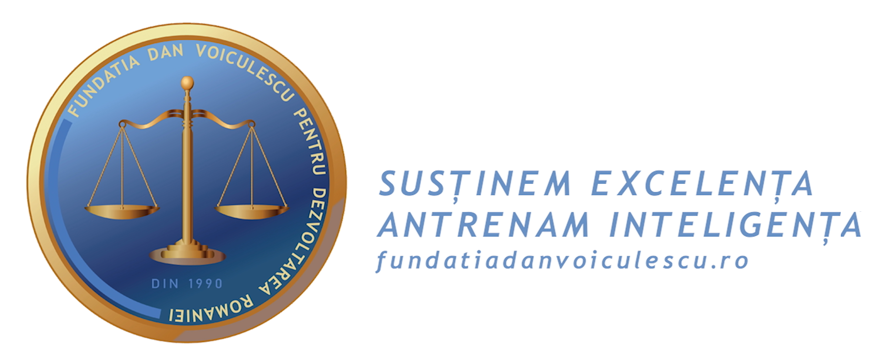PRESS RELEASE
Data: 01.11.2023
A significant number of children in Romania have a native IQ that places them in the select category of intellectually gifted. However, only 1% of these children are able to develop their full potential, mainly due to a lack of knowledge among parents and teachers about the most appropriate methods of guidance.
Dan Voiculescu Foundation for the Development of Romania organised the 7th edition of the WEBDIDACTICA conference, entitled "SOS! I have a Gifted Child! What should I do?". During the event, concrete solutions were offered to parents and teachers who have recognized in their children an outstanding intellectual potential and wish to support them in their development.
The main characteristics of a gifted child are an IQ above 130, outstanding performance in different subjects, outstanding creative and innovative skills, phenomenal artistic abilities, outstanding psychomotor skills, leadership skills. Psychologist and trainer Elena Anghel Stănilă recommended that parents should consult a specialised teacher who is able to create personalised learning plans that correspond to their potential.
Elena Stănilă also stressed the importance of early education, explaining that "by the age of 5, the rate of creation of synapse networks of basic neural circuits is the highest in life. Early education is therefore essential for activating and maximising a child's potential.” This proactive and personalised approach is crucial to ensure the harmonious development and social integration of gifted children.
Psychologist Simona Ciff, PhD in Educational Sciences, specialist in Emotional Intelligence, co-founder of the International Institute for Research and Development of Emotional Intelligence, Founder of the Passport to Success emotional intelligence programmes, highlights the importance of recognising and differentiating gifted children from high academic achievers, noting that excellence in the school environment is not always an indicator of giftedness.
"There is frequent confusion between gifted children and those who achieve excellent academic results. While there are intelligent and disciplined children who are able to respond effectively to test demands, not all are gifted", explains Simona Ciff.
The psychologist identifies four main categories of needs for gifted children: emotional, mental, physical and spiritual. Simona Ciff points out that giftedness can manifest itself in different ways, with a child excelling in one area but struggling in another. "There are gifted children who can be brilliant in maths but struggle in literature. It's important to understand that a genius doesn't have to excel in all areas. We need to identify the areas in which each child excels and give them the support they need to develop their potential in those areas", says the emotional intelligence specialist.
10 principles for educating gifted children
The education of gifted children is a complex area and requires careful attention. Dr Tyler Clark, executive administrator of the World Council for Gifted and Talented Children and professor at the University of Western Kentucky in the US has highlighted ten key principles to ensure the optimal development of gifted and talented children:
- Specialised Training for Educators: Educators and teachers working with gifted children should receive special training to meet the specific needs of these children. Educators and teachers working with gifted children should receive special training to meet the specific needs of these children.
- Customized Curriculum: Each gifted child is unique and should be provided with a curriculum tailored to their needs and abilities.
- Comprehensive Development: The education of gifted children should cover all areas of development, including cognitive, emotional and social development.
- Correct Identification of Qualities: Teachers must have appropriate methods and tools to correctly identify the various talents and abilities of gifted children.
- Respecting Diversity: Educational programs for gifted children must take into account each child's cultural background, ethnicity, sexual orientation, and socioeconomic status.
- Teacher Education: Teachers must be properly trained to identify and respond appropriately to the needs of gifted children.
- Social Integration: Gifted children must be integrated into the school community to prevent social exclusion.
- Career Guidance and Opportunities: Programmes for gifted children should include career directions and opportunities to motivate them and help them realise their potential.
- National Mainstreaming: The education of gifted children should be mainstreamed in national education policies and monitored by public authorities.
- Motivating Educators: Programmes for gifted children should stimulate and motivate educators to promote and support the development of gifted children.
FDVDR Press Office

